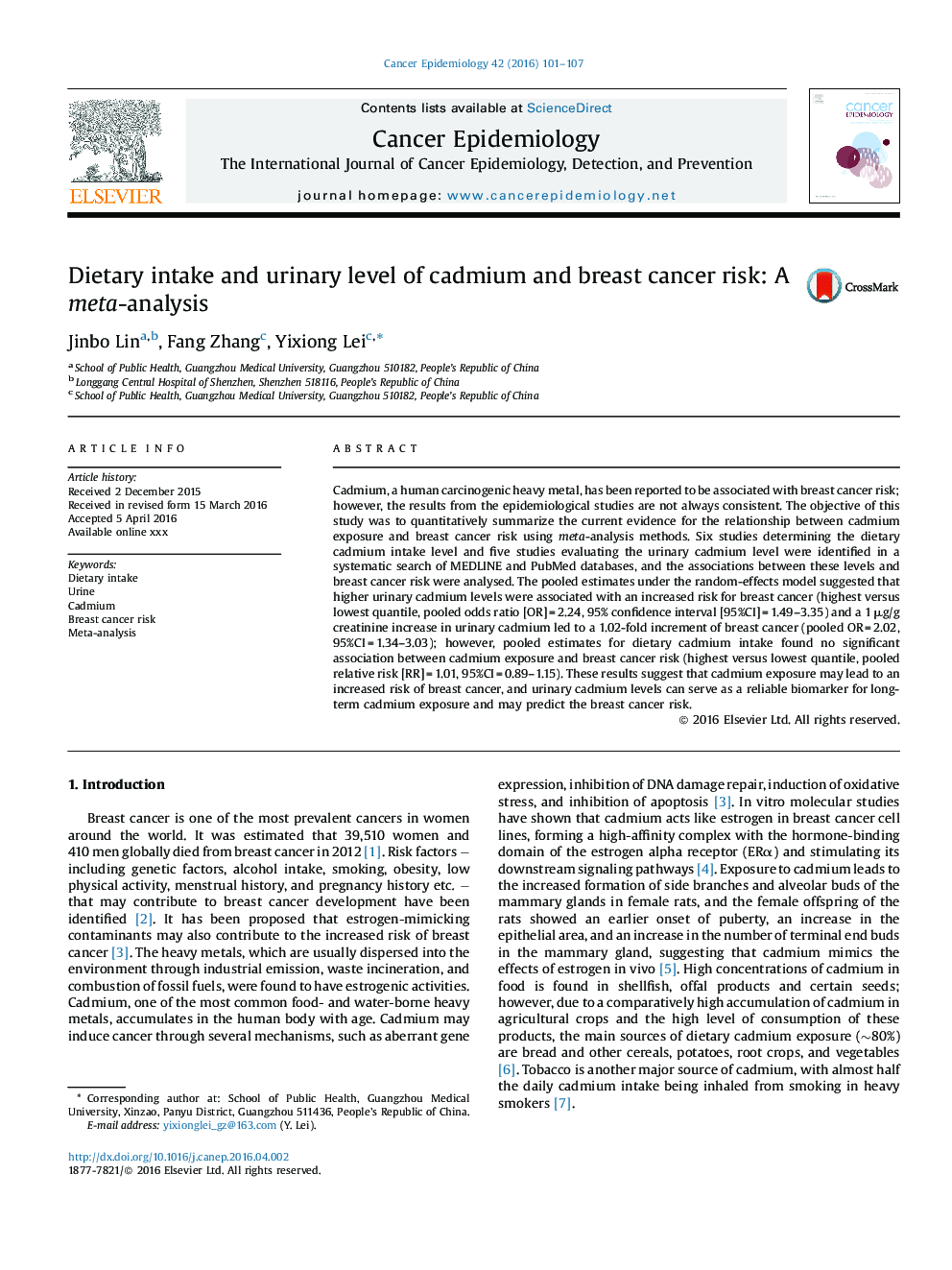| Article ID | Journal | Published Year | Pages | File Type |
|---|---|---|---|---|
| 8433114 | Cancer Epidemiology | 2016 | 7 Pages |
Abstract
Cadmium, a human carcinogenic heavy metal, has been reported to be associated with breast cancer risk; however, the results from the epidemiological studies are not always consistent. The objective of this study was to quantitatively summarize the current evidence for the relationship between cadmium exposure and breast cancer risk using meta-analysis methods. Six studies determining the dietary cadmium intake level and five studies evaluating the urinary cadmium level were identified in a systematic search of MEDLINE and PubMed databases, and the associations between these levels and breast cancer risk were analysed. The pooled estimates under the random-effects model suggested that higher urinary cadmium levels were associated with an increased risk for breast cancer (highest versus lowest quantile, pooled odds ratio [OR] = 2.24, 95% confidence interval [95%CI] = 1.49-3.35) and a 1 μg/g creatinine increase in urinary cadmium led to a 1.02-fold increment of breast cancer (pooled OR = 2.02, 95%CI = 1.34-3.03); however, pooled estimates for dietary cadmium intake found no significant association between cadmium exposure and breast cancer risk (highest versus lowest quantile, pooled relative risk [RR] = 1.01, 95%CI = 0.89-1.15). These results suggest that cadmium exposure may lead to an increased risk of breast cancer, and urinary cadmium levels can serve as a reliable biomarker for long-term cadmium exposure and may predict the breast cancer risk.
Related Topics
Life Sciences
Biochemistry, Genetics and Molecular Biology
Cancer Research
Authors
Jinbo Lin, Fang Zhang, Yixiong Lei,
